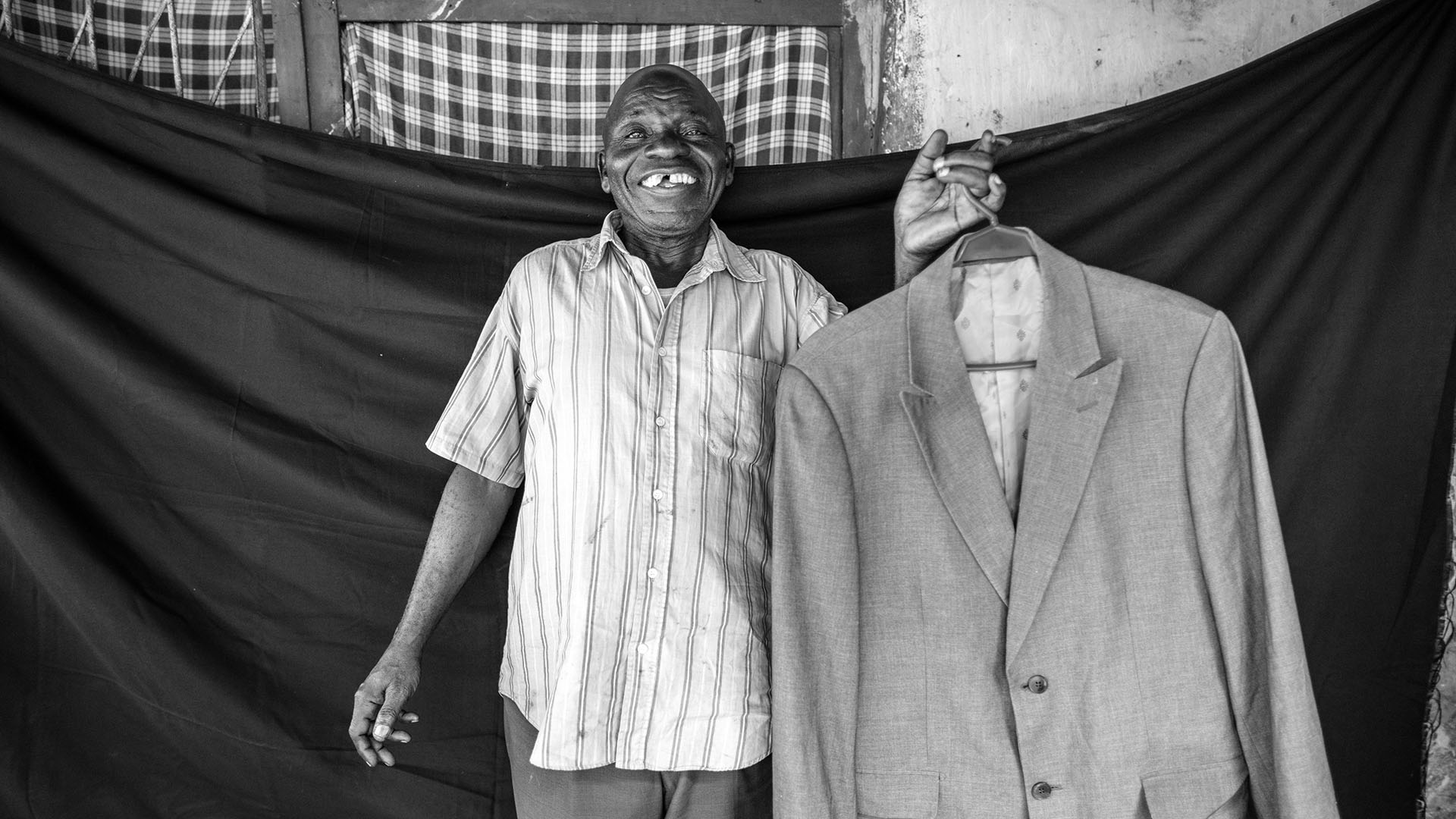Two more counties safe for return, says Liberian government
Two more counties safe for return, says Liberian government

SINJE, Liberia, Oct 11 (UNHCR) - The Liberian government has declared two more counties safe for return as the pace of voluntary repatriation picks up from Sierra Leone. Returning refugees say they are happy to be back and eager to resume their lives at home.
Liberia's National Security Assessment Committee for Resettlement announced on Friday that Bong and River Cess counties had met the minimum requirements for the safe return of Liberians uprooted by 14 years of civil war. Bong and River Cess joined four other counties - Bomi, Gbarpolu, Grand Cape Mount and Margibi - that had passed criteria like the completion of disarmament, the presence of civil authorities, the rehabilitation of basic services and the unhindered presence of humanitarian workers.
More than 250 Liberian refugees have already returned home from Sierra Leone and Ghana with UNHCR since voluntary repatriation from the region started on October 1.
Last Friday, a second convoy crossed back from Sierra Leone with 79 Liberian returnees. They stopped at Sinje transit centre in north-western Liberia for their reintegration package of food rations, household items and agricultural tools before continuing the journey to their home areas.
UNHCR staff followed one returnee family home to monitor how well they could settle back in Karnga, about 12 km from Sinje transit centre. The community welcomed them back, and promised to help repair their ruined house. Drinking water was available from a hand pump nearby. The children started classes at the community school, while their father received treatment at the local clinic for car sickness.
Meanwhile in Sinje town, 48-year-old Umaru has already been back for 10 days, having returned with the inaugural convoy from Sierra Leone on October 1. He still bears the scars of the war - he was tortured by the rebels for days back in 2002 - and was initially afraid to return.
"I was afraid to see people who beat me in the past," Umaru confided. "But now I can see with my eyes that the war is over."
Before he left for Sierra Leone, Umaru was an Arabic teacher, teaching six classes of about 300 students in Sinje town. "I hope that schools will be rehabilitated soon so I can teach again," he said.
His wife Hattie had returned on her own earlier to track down a daughter separated during the war. She found the girl with the help of child protection agencies. Today, the family of eight has been reunited, and Hattie works as a cook in Sinje transit centre.
"I am happy to cook cassava and rice for my people, and thanks to this job, I can send my children to school," said Hattie, who wants her children to continue the education they started in Sierra Leone's Tobanda camp.
Life appears to be returning to normal in Sinje. All around the village, people are welcoming relatives and friends who are finally back after years in exile. Small-scale businesses are starting to flourish again. Young people walk with books under their arms on their way to school, women sew new clothes, children play and elders talk peacefully under a hut in the middle of the village. Men and women carry agriculture tools to their gardens to plant vegetable seeds so that they can have something to eat in December.
"Many private houses and administrative buildings are being rehabilitated, and civil authorities are expanding their presence in the counties," noted UNHCR's Representative in Liberia, Moses Okello. "However, UN agencies will still have to intervene and assist, mainly in the rehabilitation of infrastructures and capacity-building."
Both Sinje and Karnga are located in Grand Cape Mount county, where national police officers and troops from the UN Mission in Liberia (UNMIL) are ensuring security. UNMIL has trained 500 police officers and disarmed more than 83,000 ex-combatants since December 2003.
UNHCR's work in Grand Cape Mount county covers mainly reintegration activities for returning refugees, internally displaced Liberians and their host communities. A total of two health centres and seven clinics have been rehabilitated in the area and all of them are operational. In addition, awareness campaigns on HIV/AIDS and sexual and gender-based violence are being conducted within the communities to enhance the protection of women and children.
Since December 2003, about 10,000 Liberians refugees have returned from Sierra Leone on their own through Bo Waterside in Grand Cape Mount county. Despite the operational and security constraints at that time, UNHCR assisted them by establishing a transit facility with a capacity for 400 people at Bo Waterside and transporting them to the Monrovia area as the counties were not yet safe for return. They are still living in transit centres near the capital, and will be assisted back to safe counties starting on November 1.
Other Liberian refugees tried to return home by their own means, often using risky modes of transport like walking overland from Ghana or taking unsafe boats from Nigeria.
UNHCR is planning to repatriate 100,000 Liberian refugees by the end of the year, and an estimated 340,000 by the end of its three-year regional repatriation programme.
By Francesca Fontanini
UNHCR Liberia









